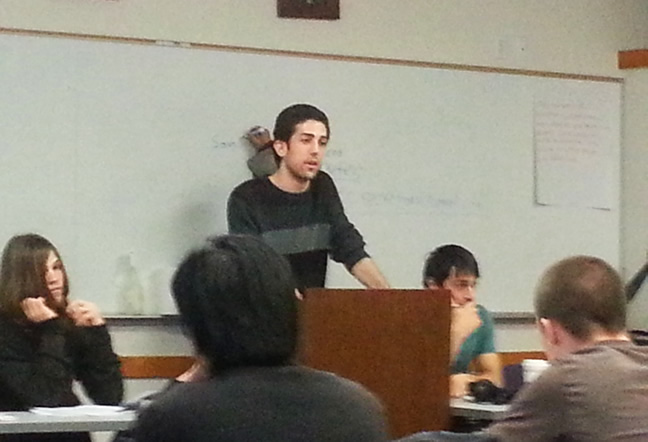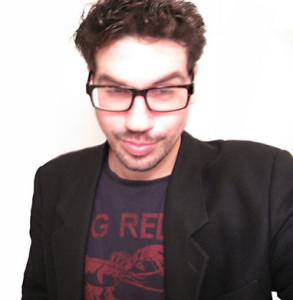If DVC’s Inter-Club Council — still dusting itself off in the fallout of a recent impeachment — and ASDVC’s legislature — scrambling to fill a vacated seat — are going to effectively lead DVC’s student body, they’ll need vision and leadership from Ryan Souza, and Sam Park to do it.
In an unconventional series of moves, ASDVC’s (now former) Vice President of Legislative Affairs Ryan Souza nominated himself chair of the ICC in the absence of any volunteers, an automatic forfeiture of his position at ASDVC. Souza’s open seat prompted a council race for the spot between members Sam Park, and Shyam Maharaj — a race narrowly won by Park in a 9-8 vote during ASDVC’s meeting last Tuesday. The exchange proved timely for ICC’s beleaguered finance committee–Ways and Means, which has become the subject of some controversy in recent weeks.
Normally Souza’s former seat would have been decided during student elections. But according to ASDVC by-laws, no person may hold more than one office at a time, and once elected to fill a vacant position, automatically resign that seat, after which only ASDVC board members can vote for replacement candidates.
A favorite for the position, ICC welcomed Souza with open arms, specially electing him to fill the seat, which until that point had been occupied by interim Cruz Conrad.
“We were without a chair. When we went over there to ask ‘who wanted to be president?’ Ryan was the only one who said, ‘yes, I’d like to be president,’” Cruz explained.
Without consistent leadership, ICC’s fledgling Ways and Means committee has often failed to meet quorum and has violated procedural code, according to several ASDVC and ICC members. This encouraged some talk about merging it with ASDVC’s Budget Oversight committee.
“We need to address the inefficiency. Last year there was paper pushing that was not being done. There were clubs that were being brought up on agendas that should have gone through Ways and Means. There were committees that were prescribed into ICC constitution, that don’t even exist” Maharaj said.
ICC’s Ways and Means struggles aren’t viewed as isolated hiccups. ICC is an arm of ASDVC, and the ripples of their missteps are felt at the top.
“Whenever (ICC) screw up, it reflects back on (ASDVC)“ said Maharaj. “ASDVC is the parent, as clarified in our constitution.”
According to ICC budget code, there’s a $500 limit on the amount of funding any one club can request through the ICC. Any more than that has to be OK’d by ASDVC, the added step creating a glut of clubs consuming floor time at ASDVC meetings.
The problem was supposed to be addressed when ASDVC amended the budget code to raise funding-per-request. But the change was never formalized once it got to ICC.
“Even though ASDVC approved a raise in the maximum funds that could be allocated to $1000 dollars, somehow that got lost along the way, and ICC was still only allocating $500,” Souza said. In some cases, a few clubs even failed to report they had exhausted their options through ICC’s channels before going to ASDVC for more money.
What’s more, the word “merger” strikes many as a misnomer. In the council meeting where the term first surfaced, ASDVC Vice President of Executive Affairs Peter Kim wondered how helpful it was, “ASDVC has the authority to represent the whole student body, and ICC was created exclusively for student clubs. So I don’t see any reason the ICC should have the same authority.”
“ICC is not a separate body. They are a committee of ASDVC. ASDVC functions differently than ICC. ASDVC has more committees than ICC. The idea is to pitch the idea of an extreme to see where people stand, and as you can see a majority of the board said ‘no,'” explained Maharaj.
Growing consensus is for better communication and oversight, rather than a wholesale integration or takeover, members listing potential conflicts from an outright merger. When asked what might go wrong in that model, Maharaj was explicit, “[ICC] club sovereignty. Because a club will argue ‘we are a club on our own. ‘We have our own constitution. We’ve been reporting to ICC.’”
The hope is that new ICC Chair Ryan Souza, filling a long-empty seat at the head of ICC, can improve function and communication between the two groups.
Already, stability in ICC’s leadership has softened demand for improved budget oversight from talk of an outright committee merger, now trending toward a wait-and-see approach.
“It’s too soon to tell,” said Sam Park. I’m more confident that Ryan is going to be able to fix the situation. It’s too soon to tell if it’s necessary to build an oversight committee.”
They may not have to wait, as it appears current budget code is undergoing an overhaul which may go a long way in addressing any perceived dysfunction. “ICC has a new code review committee who will be working to rewrite the code, written in accordance to review of the Budget Oversight’s finance code,” Maharaj went on to say.
The frustration from both groups trying to improve the process has consumed progressively more floor time in recent weeks, which is why many view amending the budget and finance codes as a necessary.
With less than two months between now and student elections, goals for any comprehensive campaign appear ambitious, but both Souza and Park seemed confident they could tackle legislative inefficiencies.
How do they hope to do that, exactly? Park and Souza cite experience as the game changer.
“I have experience, I know how to get things done. I’m the kind of individual who’s not satisfied with mediocrity. Working a lot with ASDVC, I know the process, and know what goals we need to accomplish,” Park submits.
Park isn’t wasting time with large scale plans, either. As a matter of course, he’ll get his chance as the lead student organizer of the upcoming March in March. The annual protest pits student advocates against the state’s UC and CSU system budget cutters.
The march presents with a host of logistical problems that will rely heavily on shrewdness, and competent organizational skills. “I no longer represent 275 students, I’m representing 22,000 students. It is my duty and obligation to have our voices be heard,” said Park.
Souza remained equally confident his experience would figure prominently in righting the course of the wayward committee. “There’s a big lack of communication In ICC, and between ICC and ASDVC. As someone who’s been in ASDVC for a long time, I feel like being able to go in there, I can bring back the proper information, and relay it to both.”
Time will tell if the newly formed code will produce desired results, but at least for now, ASDVC taking back major regulatory power seems off the table. “I don’t think it [merger] would go anywhere,” said Souza. “What my take on it is, when I hear ‘merger,’ it’s not, in essence, making them one, but enhancing the communication. I still think they should be separate to a degree.”






































































